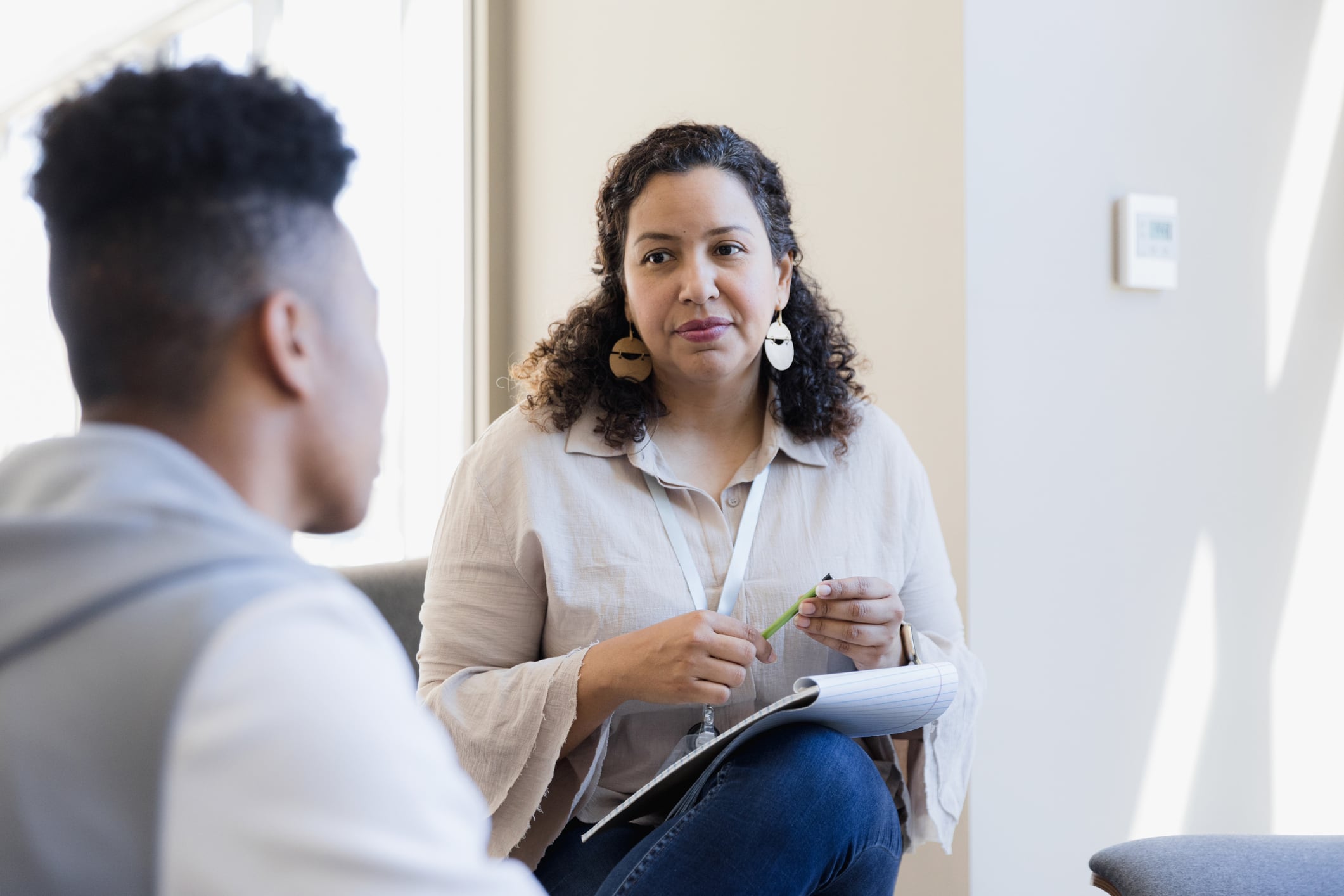An expectation to “return to normal” this school year has exacerbated student anxiety, depression, and other mental health needs that were already on the rise after the outbreak of the COVID-19 pandemic, school counselors said during a virtual panel organized by the Latino Mental Health Association of New Jersey.
Counselors and other mental health professionals who are part of the state’s school-based youth services program — which contracts nonprofits to provide those services in host schools — gathered virtually on Thursday to discuss their efforts and struggles to re-engage students two years after the pandemic began.
Though anxiety and depression have spiked among their students, counselors are finding hope in being in-person with their students, less stigma in school around seeking help, and sharing resources and tips with their colleagues.
Many students, they say, are finding it challenging this school year to follow basic rules and expectations, such as wearing a uniform all day, showing up to class on time, and completing assignments. Behind those behaviors are students grappling with anxiety, chronic stress, and depression.
In 2020 and 2021, students experienced “fight or flight mode” as schools switched to remote learning for 18 months, said Giselle Fontalvo, a school counselor in Passaic Public Schools who led the virtual meeting. Then, the 2021-22 school year became “all about survival” as in-person learning returned with masks and COVID testing in the face of an ongoing pandemic, she added.
But this school year, with limited accommodations and no remote learning option, students are experiencing a shock as they face yet another transition – a “return to normal” – and it’s affecting their mental well-being, Fontalvo said.
“You need to be in school on time every day and you can’t get up five minutes before school starts to log on to a computer,” Fontalvo said. “There’s this sense of shock when students face consequences for consistently showing up late, like, ‘What do you mean I have detention? I didn’t get detention last year.’”
Student mental health needs ‘rapidly increasing’
The pressure for students to perform well academically and socially in school this year has intensified their mental health needs more than at any point during the pandemic, said Nivioska Bruce, the associate vice president of clinical interventions in schools for Care Plus NJ, during the virtual meeting.
Her clinical intervention teams lead “school clearance assessments” on students to evaluate their level of risk to themselves or others before they’re sent to emergency psychiatric services at a hospital, she said.
In the first three months of school, her team has already “seen so many students” go to emergency rooms for having high-risk levels, Bruce said.
“We’re just realizing the level of intensity that they’re presenting with has been something that we haven’t seen,” she said. “Their mental health needs have increased tremendously. All of the stress from the last two years turned into chronic stress, creating this inability to regulate and utilize healthy coping skills. And now, these levels of anxiety and depression are just rapidly increasing.”
Jennesis Quintana, a school-based youth services counselor with the Mental Health Clinic of Passaic, has seen her students struggling with keeping on their uniforms and lanyards that hold student identification cards and completing assignments.
“A lot of them say it’s hard for them to go to sleep at night, and when they wake up they’re drained and can’t get out of bed or make it in on time,” Quintana said at the virtual meeting.
She said she can recognize when her students are going through depression as it often shows up in their appearance, something she would have missed in a virtual setting. They’ll come to school with poor hygiene and a lack of appetite, on top of the sleep deprivation, she said.
“Those factors then impact how they overall perform, how they function throughout the day, and how they interact with one another,” Quintana said.
But, the counselors said, there’s room for hope.
“The students are opening up more and more,” Quintana said. “You can see what they’re not saying through their body language and interactions and you have direct access when they’re having a breakdown.”
In a phone call on Monday, Fontalvo told Chalkbeat that she feels lucky to work in a district that’s predominantly Latinx and Hispanic, where students can see themselves reflected in her.
“When my English language learners come to see me, they say, ‘Oh, thank God, you speak Spanish,’” she said. “The rest of the day, they’re working on acclimating to the school environment and speaking in English, but with that one conversation in Spanish, they get to have a little relief and feel comfortable.”
There’s also “power in being in the moment” with a student when they’re having trouble regulating intense emotions, Fontalvo said.
“You can help them navigate those feelings of anxiety by simply validating their experience and guiding them with helpful steps to take,” she said. “We can say, ‘OK, you’re right, it is a lot. But we still have to work on this and the goal is still to be a great student. How about we take these two minutes to freak out, and then we’ll work on our to-do list together.’”
In the last two years, an open dialogue about mental health in schools has reduced the stigma of visiting a school counselor or psychologist for help, the counselors said.
“The access to immediate, consistent support and care is the best part of being in schools,” Bruce said at the virtual meeting. “We know that school-based mental health for many of the students and families that come through, this may be the first time they have access to this type of service, but it’s in a place that’s familiar and safe and free of stigma.”
When talking with her students about their needs and what would help them address the pressure they feel, Quintana said she learned that they would like to start their day with a “mental health break.”
“When they haven’t had a good night’s rest, or they just had a fight with a parent, to come in and have a test or project or presentation waiting for them can be overwhelming,” Quintana said to her fellow school-based counselors at the virtual meeting.“Maybe we can incorporate the first 15-20 minutes of the day as a break for them to catch their breath and then start the day.”
Azara Santiago Rivera, president of the Latino Mental Health Association of New Jersey, said in a phone call with Chalkbeat on Friday that she aims to continue holding these meetings for school counselors to share their experiences and resources, especially those that work in predominantly Latinx communities and communities of color.
“At a time when we’re seeing a rise in serious mental health needs for students, we’re also seeing a shortage of mental health professionals,” Santiago Rivera said. “This is the time to share ideas, resources, and strategies with each other and create a safe space for our professionals.”
Catherine Carrera is the bureau chief for Chalkbeat Newark, covering the city’s K-12 schools with a focus on English language learners. Contact Catherine at ccarrera@chalkbeat.org.








